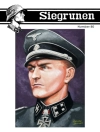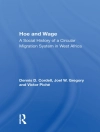This enthralling story of survival is the first major narrative of the exploration of North America by Europeans (1528-36). The author of
Castaways (
Naufragios), Alvar Núñez Cabeza de Vaca, was a fortune-seeking nobleman and the treasurer of an expedition to claim for Spain a vast area that includes today’s Florida, Louisiana, and Texas. A shipwreck forced him and a handful of men to make the long westward journey on foot to meet up with Hernán Cortés.
In order to survive, Cabeza de Vaca joined native peoples along the way, learning their languages and practices and serving them as a slave and later as a physician. When after eight years he finally reached the West, he was not recognized by his compatriots.
In his writing Cabeza de Vaca displays great interest in the cultures of the native peoples he encountered on his odyssey. As he forged intimate bonds with some of them, sharing their brutal living conditions and curing their sick, he found himself on a voyage of self-discovery that was to make his reunion with his fellow Spaniards less joyful than expected.
Cabeza de Vaca’s gripping narrative is a trove of ethnographic information, with descriptions and interpretations of native cultures that make it a powerful precursor to modern anthropology. Frances M. López-Morillas’s translation beautifully captures the sixteenth-century original. Based as it is on Enrique Pupo-Walker’s definitive critical edition, it promises to become the authoritative English translation.
This enthralling story of survival is the first major narrative of the exploration of North America by Europeans (1528-36). The author of
Castaways (
Naufragios), Alvar Núñez Cabeza de Vaca, was a fortune-seeking nobleman and the treasurer of
Daftar Isi
Contents
List of Illustrations
Editor’s Foreword
Acknowledgments
Introduction
Prologue
I Which Recounts When the Fleet Sailed,
and the Officers and Men Who Went in It
II How the Governor Arrived at the Port
of Jagua and Brought a Pilot with Him
III How We Reached Florida
IV How We Marched Inland
V How the Governor Left the Ships
VI How We Reached Apalachee
VII Of the Manner of the Land
VIII How We Departed from Aute
IX How We Departed
from the Bay of Horses
X Of the Fight We Had with the Indians
XI Of What Befell Lope de Oviedo
with Some Indians
XII How the Indians Brought Us Food
XIII How We Had News
of Other Christians
XIV How Four Christians Departed
XV What Befell Us in
the Isle of Ill Fortune
XVI How the Christians Departed
from the Isle of Ill Fortune
XVII How the Indians Came
and Brought Andres Dorantes and
Castillo and Estebanico
XVIII Of the Report Given to
Figueroa by Esquivel
XIX How the Indians Separated Us
XX How We Escaped
XXI How We Cured Some Sufferers There
XXII How They Brought Us More
Sick Folk Next Day
XXIII How We Departed after
Eating the Dogs
XXIV Of the Customs of the Indians
of That Land
XXV Of the Indians’ Readiness
to Use Arms
XXVI Of the Tribes and Their Languages
XXVII How We Moved and
Were Well Received
XXVIII Of Another New Custom
XXIX How Some Indians
Robbed the Others
XXX How the Custom of Receiving
Us Changed
XXXI How We Followed the Maize Road
XXXII How They Gave Us Hearts of Deer
XXXIII How We Saw Traces of Christians
XXXIV How I Sent for the Christians
XXXV How the Mayor Received Us Well
on the Night We Arrived
XXXVI How We Caused Churches to Be
Built in That Land
XXXVII Of What Befell When I
Decided to Return
XXXVIII What Befell the Others Who
Went to the Indies
APPENDIX A Note on the Text
APPENDIX a The American Cultures Described
in Cabeza de Vaca’s Naufragios
Notes
Select Bibliography
Index
Tentang Penulis
Enrique Pupo-Walker is Centennial Professor of Spanish and Portuguese at Vanderbilt University. His edition of Naufragios was published in Spain in 1992. Frances M. López-Morillas is an award-winning translator living in Austin, Texas.












